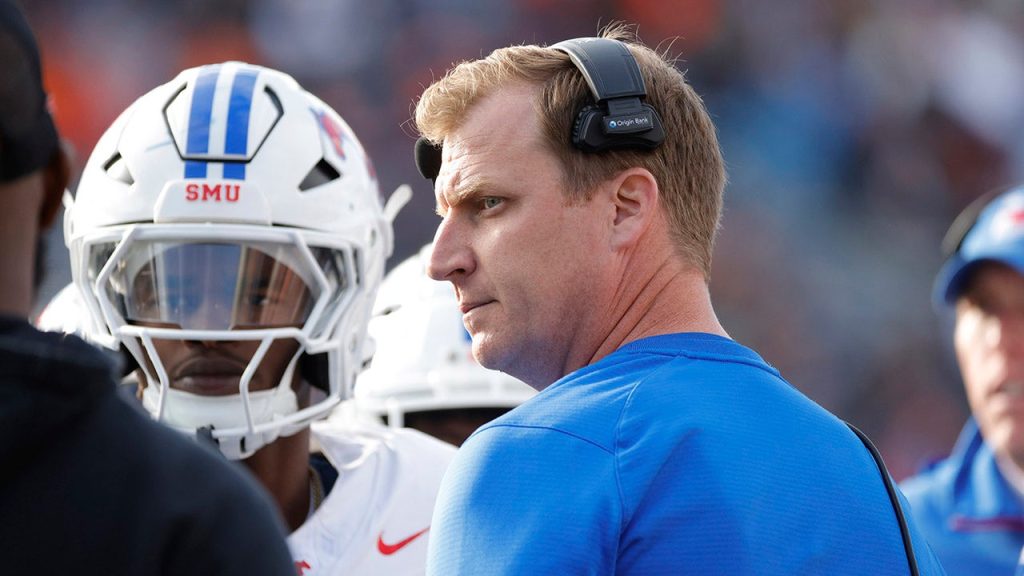The confluence of the college football transfer portal opening and the commencement of the College Football Playoff has ignited a contentious debate within the sport, raising questions about player welfare, competitive balance, and the overall integrity of the postseason. The timing of the portal’s opening, just days before the playoffs, has forced players to make career-altering decisions amidst the high-stakes pressure of championship contention, creating a scenario that many coaches and players deem untenable. This conflict has brought to light the inherent tension between individual player autonomy and the collective goals of a team striving for a national title.
The crux of the controversy lies in the perceived unfairness of requiring players to choose between focusing on their team’s playoff run and exploring potential transfer opportunities. Coaches like SMU’s Rhett Lashlee have vehemently criticized the current system, arguing that no other sport subjects its athletes to such a disruptive “free agency” period during the most crucial part of the season. Lashlee’s concerns echo the sentiments of Penn State head coach James Franklin, who acknowledged the “no-win” situation faced by his backup quarterback, Beau Pribula, who felt compelled to enter the portal despite the team’s impending playoff game. This predicament highlights the inherent conflict between a player’s desire to secure their future playing time and their commitment to their current team’s championship aspirations.
The timing of the transfer portal opening has also raised concerns about potential distractions and disruptions for teams competing in the playoffs. Coaches are forced to manage roster uncertainty while simultaneously preparing for high-pressure games, a balancing act that can undermine team cohesion and focus. The constant threat of players being “picked off” by other programs, as Lashlee described it, creates an atmosphere of instability and undermines the sanctity of the playoff competition. This external pressure further complicates the already challenging task of coaching in a high-stakes environment.
Lashlee’s proposed solution – delaying the opening of the transfer portal until the spring – has gained traction among those critical of the current system. This approach would allow players to make informed decisions about their future without the added pressure of an ongoing playoff run. It would also provide coaches with greater roster stability and allow them to focus solely on preparing their teams for the most important games of the season. By decoupling the transfer portal from the playoffs, the NCAA could create a more equitable and less disruptive environment for both players and coaches.
However, delaying the transfer portal also presents potential drawbacks. Players who wish to transfer for academic or personal reasons might be forced to wait several months before exploring new opportunities. Furthermore, a later portal opening could compress the recruiting timeline for coaches, potentially leading to hasty decisions and less thorough evaluations of prospective transfers. Finding a balance between player autonomy and the needs of the coaching staffs remains a complex challenge.
The ongoing debate surrounding the transfer portal and its intersection with the College Football Playoff underscores the evolving landscape of college athletics. The increasing emphasis on player empowerment, coupled with the rise of Name, Image, and Likeness (NIL) deals, has created a more dynamic and fluid player market. While the current system presents significant challenges, finding a solution that addresses the concerns of all stakeholders will require careful consideration and a willingness to adapt to the changing dynamics of college football. The NCAA must strive to create a system that respects both individual player choices and the integrity of the playoff competition. This may involve exploring alternative models, such as a tiered transfer portal system or designated transfer windows, to mitigate the disruption and ensure a more equitable playing field for all.


